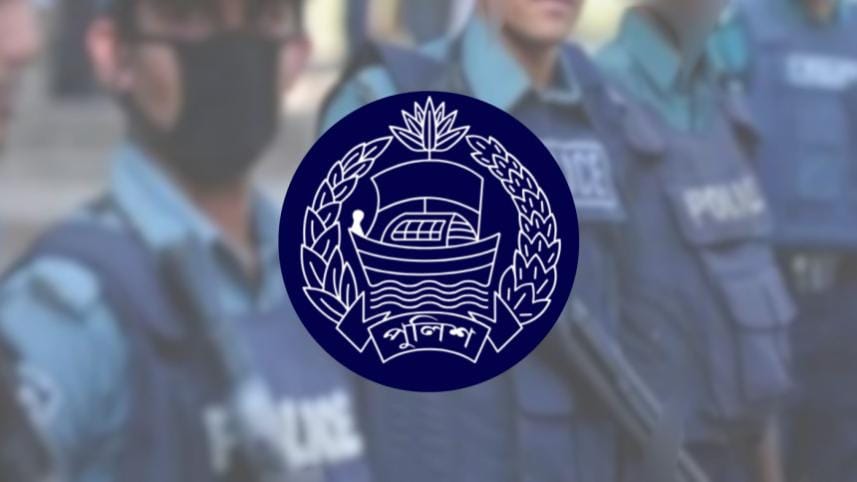Allegations against cops: Probe team should include accuser’s representative

Amid concerns over the impartiality of investigations into various allegations against law enforcers, the Police Reform Commission has recommended the inclusion of a representative of the complainant in the probe team.
The proposed measure aims to enhance transparency and fairness and ensure greater confidence among both the public and police personnel.
"The management of complaints against the police should be transparent, and easily accessible to all. It should provide effective remedies for victims," the reform commission said in its comprehensive report submitted to the chief adviser on Saturday.
Somehow the offenders [in police] are getting spared and so, they are becoming repeat offenders.
As allegations of corruption, misconduct, and abuse of power continue to plague the force, the commission proposes removing long-term or habitual offenders from the police in line with the law.
It suggests training officials who conduct primary and departmental investigations into these allegations. It also recommends establishing a committee to dispose of harassment allegations against police personnel in line with the High Court's directives.
The commission suggests establishing complaint cells similar to the IGP's Complaint Monitoring Cell in all police units, including ranges, metropolitan areas, and SP offices. It says reports on the cells' activities, disciplinary processes, and outcomes should be published online on a regular basis.
Of the 3,970 complaints filed against police personnel from January 2023 to September 2024, action was taken in only 853 cases or 21.5 percent of the total, according to the reform commission report.
Primary inquiries failed to substantiate 2,482 allegations, while the concerned department at the Police Headquarters requested corrections and resubmission of 635 inquiry reports.
A total of 268,721 police officers faced departmental punishment for various offences and disciplinary breaches from 2009 to September 2024.
Among them, 23,550 received major punishments like termination, suspension or demotion while 245,171 faced minor consequences like warning, reprimand, or temporary wage cut.
However, the benefits corrupt members can get by abusing their power often surpass the departmental action by far.
The police investigate allegations and impose punishments for policemen with the ranks of constable to sub-inspector. For Class-1 officers, a committee comprising police officers assigned by the home secretary conducts investigations. The secretary holds the authority to punish an officer if found guilty. In rare cases, a home ministry official is included in the committee, said a top officer.
Allegations of police's involvement in crimes ranging from extortion, abduction, and torture to bribery, drug dealing, framing people and unlawful detention are reported in the media quite often.
Criminologists blame lenient disciplinary measures for these incidents.
Omar Faruk, a professor of criminology and police science at Mawlana Bhashani Science and Technology University, said police continue to get involved in crimes because the punishments of police personnel often do not match the severity of their crimes or offences.
"Somehow the offenders [in police] are getting spared and so, they are becoming repeat offenders," he told The Daily Star.
In 2020, a total of 22,623 policemen were punished. Among them, 2,935 received major punishments, while 19,688 faced minor penalties. The number was 22,186 in 2021, with 2,660 facing major punishments and 19,526 minor punishments.
Punishments of 26,105 police personnel were recorded in 2022, including 3,201 major and 22,904 minor penalties. In 2023, the total was 24,534, including 2,461 major and 22,073 minor punishments.
From January to September 2024, police personnel faced punishments in 14,751 cases, with 1,678 categorised as major and 13,073 as minor consequences.
Influential police officers who were loyal to the previous Awami League government did not face any punishment although investigators found evidence of corruption and abuse of power.
The Police Headquarters fired 18 Narayanganj constables over serious irregularities in their recruitment in 2019 and recommended departmental action against at least 10 inspectors and sub-inspectors for their "false" verification reports or recommendations.
The PHQ, however, did not recommend any action against the ultimate decision-maker, the then Narayanganj superintendent of police Muhammad Harun Or Rashid although a three-member team in 2020 found the irregularities in the recruitment of constables under a district quota.
The reform commission report says the management of complaints against the police is considered a very important regulator in ensuring a democratic and accountable police service.
Effective complaint management to hold the police accountable plays an important role in ensuring public satisfaction, it adds.




 For all latest news, follow The Daily Star's Google News channel.
For all latest news, follow The Daily Star's Google News channel.
Comments